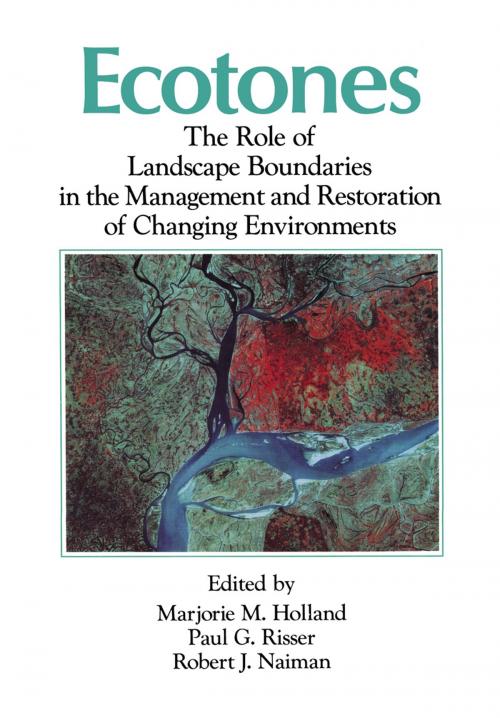Ecotones
The Role of Landscape Boundaries in the Management and Restoration of Changing Environments
Kids, Natural World, Nonfiction, Reference & Language, Education & Teaching, Science & Nature, Science| Author: | ISBN: | 9781461596868 | |
| Publisher: | Springer US | Publication: | December 6, 2012 |
| Imprint: | Springer | Language: | English |
| Author: | |
| ISBN: | 9781461596868 |
| Publisher: | Springer US |
| Publication: | December 6, 2012 |
| Imprint: | Springer |
| Language: | English |
We live in a changing world; one in which there is much concern and discussion about the topics of global change, loss of biodiversity, and increasing threats to the sustainability of ecosystems. The effects these changes may have on the environment have lead governments and sCientists to make predictions as to how soon changes might occur, where, and with what impact for large and small regions of the Earth. Along with this concern for change in various regions has come the need to understand the role of boundaries between these regions and between landscape elements. Much previous ecological research has dealt with processes within relatively homogeneous landscape units or even the collective characteristics of a composite landscape. Now, however, there is an appreciation that abiotic and biotic components move across heterogeneous landscapes and that the boundaries between these units take on important control functions in this dynamic spatial system. Furthermore, landscape boundaries (or ecotones) are important not only in satisfying life-cycle needs of many organisms, but generally are characterized by high biological diversity.
We live in a changing world; one in which there is much concern and discussion about the topics of global change, loss of biodiversity, and increasing threats to the sustainability of ecosystems. The effects these changes may have on the environment have lead governments and sCientists to make predictions as to how soon changes might occur, where, and with what impact for large and small regions of the Earth. Along with this concern for change in various regions has come the need to understand the role of boundaries between these regions and between landscape elements. Much previous ecological research has dealt with processes within relatively homogeneous landscape units or even the collective characteristics of a composite landscape. Now, however, there is an appreciation that abiotic and biotic components move across heterogeneous landscapes and that the boundaries between these units take on important control functions in this dynamic spatial system. Furthermore, landscape boundaries (or ecotones) are important not only in satisfying life-cycle needs of many organisms, but generally are characterized by high biological diversity.















